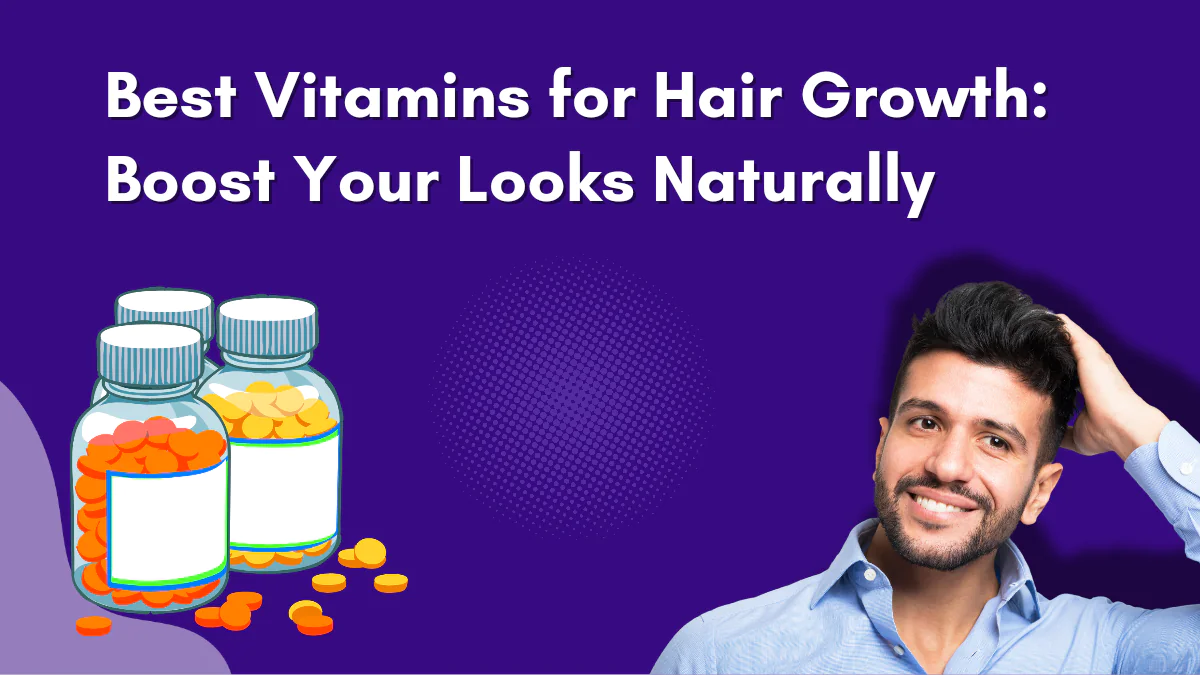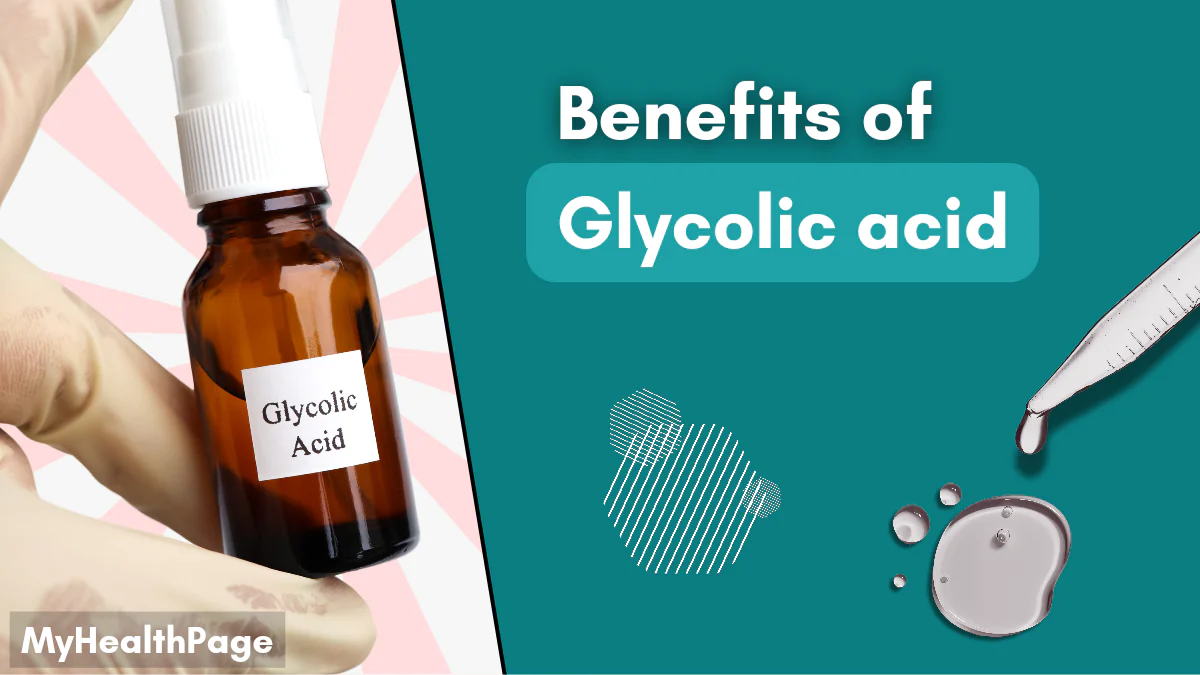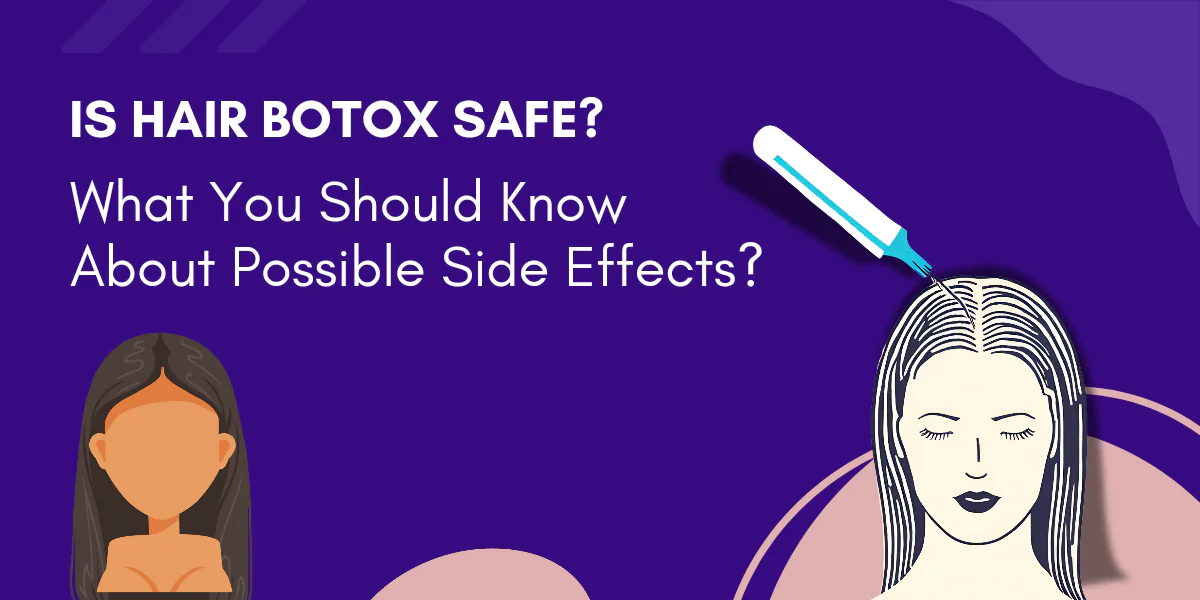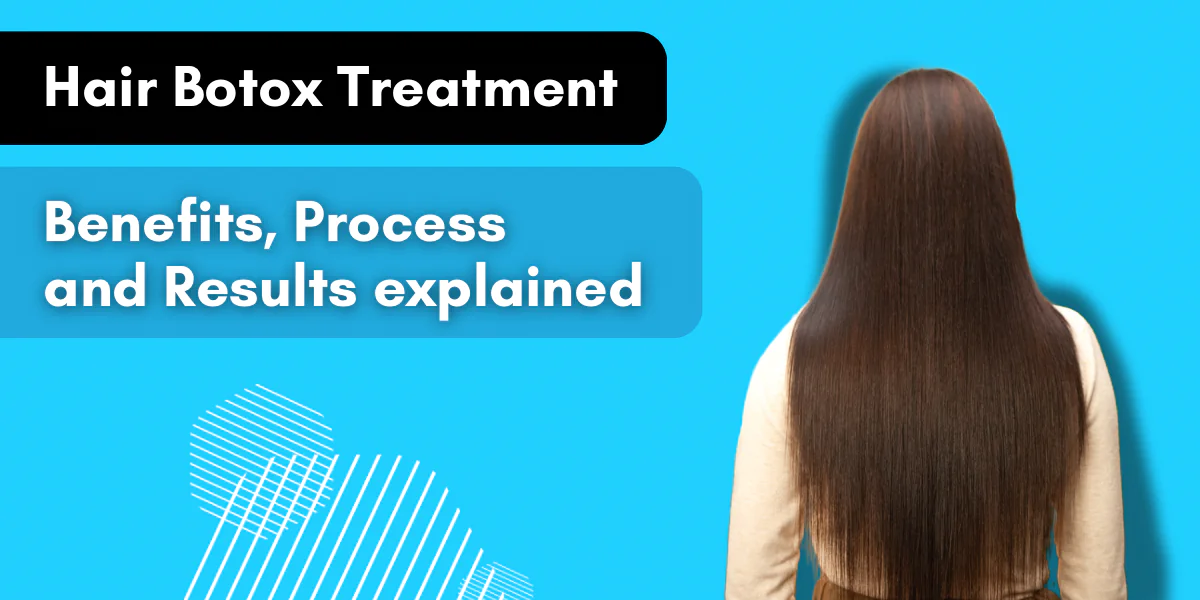Hair growth and health are directly influenced by your overall nutrition. While genetics and lifestyle play a significant role, ensuring that your body gets the right vitamins can make a remarkable difference in the strength, shine, and growth of your hair. Nutritional deficiencies often result in hair thinning, breakage, and slow growth.
In this article, we’ll explore the best vitamins for hair growth, their benefits, and how to incorporate them into your daily routine to achieve naturally beautiful locks.
Why Vitamins are Essential for Hair Growth
Hair is made primarily of keratin, a protein that requires specific nutrients for proper synthesis. Vitamins act as co-factors, supporting cellular functions such as protein production, scalp circulation, and follicle repair. A well-balanced diet rich in essential vitamins can:
- Promote stronger hair growth
- Reduce breakage and split ends
- Prevent hair thinning and hair loss
- Enhance scalp health
Best Vitamins for Hair Growth
1. Biotin (Vitamin B7)
- Benefits: Biotin is a water-soluble vitamin that supports keratin production, enhancing hair strength and elasticity. It also combats hair thinning by improving follicle health.
- Sources: Eggs, nuts, seeds, salmon, and sweet potatoes.
- Daily Recommended Intake: 30–100 mcg.
2. Vitamin A
- Benefits: Vitamin A promotes sebum production, an essential natural oil that moisturizes the scalp and keeps hair healthy. It also supports cell regeneration in hair follicles.
- Sources: Carrots, spinach, sweet potatoes, and mangoes.
- Daily Recommended Intake: 700–900 mcg.
3. Vitamin C
- Benefits: Vitamin C boosts collagen production, an essential protein for hair structure. It also acts as a powerful antioxidant, protecting hair follicles from free radical damage.
- Sources: Citrus fruits, strawberries, bell peppers, and broccoli.
- Daily Recommended Intake: 75–90 mg.
4. Vitamin D
- Benefits: Vitamin D stimulates hair follicles, preventing hair thinning and promoting growth. A deficiency in this vitamin is often linked to alopecia, a condition causing hair loss.
- Sources: Sunlight, fatty fish, egg yolks, and fortified cereals.
- Daily Recommended Intake: 600–800 IU.
5. Vitamin E
- Benefits: Vitamin E improves blood circulation to the scalp, nourishing hair follicles and encouraging growth. Its antioxidant properties protect the hair from environmental damage.
- Sources: Almonds, sunflower seeds, spinach, and avocados.
- Daily Recommended Intake: 15 mg.
6. Niacin (Vitamin B3)
- Benefits: Niacin enhances scalp circulation, delivering essential nutrients to hair follicles. This supports healthy, thick hair growth.
- Sources: Chicken, tuna, mushrooms, and peanuts.
- Daily Recommended Intake: 14–16 mg.
7. Vitamin B12
- Benefits: Vitamin B12 prevents hair loss by supporting red blood cell production, which delivers oxygen and nutrients to hair follicles.
- Sources: Dairy products, eggs, meat, and fortified plant-based milk.
- Daily Recommended Intake: 2.4 mcg.
8. Zinc
- Benefits: Zinc regulates oil glands on the scalp and repairs damaged hair tissue. It prevents hair loss caused by deficiencies.
- Sources: Pumpkin seeds, lentils, beef, and chickpeas.
- Daily Recommended Intake: 8–11 mg.
9. Iron
- Benefits: Iron ensures that hair follicles receive sufficient oxygen and nutrients via red blood cells. Low iron levels are a leading cause of hair loss, especially in women.
- Sources: Red meat, spinach, tofu, and fortified cereals.
- Daily Recommended Intake: 18 mg.

How to Incorporate Vitamins for Hair Growth
1. Eat a Balanced Diet
Consume a variety of whole foods like fruits, vegetables, lean proteins, and healthy fats to ensure you’re getting all essential vitamins naturally.
2. Take Supplements
If dietary intake isn’t sufficient, consider taking high-quality hair growth supplements containing biotin, vitamin D, and iron. Always consult a healthcare provider before starting supplements.
3. Stay Hydrated
Proper hydration ensures vitamins are absorbed effectively and helps maintain scalp moisture, preventing hair dryness.
4. Practice Scalp Care
Use vitamin-enriched shampoos and oils containing ingredients like vitamin E or biotin to nourish your scalp topically.
Vitamins for Hair Growth Based on Hair Concerns
For Hair Thinning
- Focus on biotin, vitamin D, and iron to improve follicle health and boost growth.
For Dry and Brittle Hair
- Vitamin A and vitamin E promote scalp moisture and repair damaged hair.
For Premature Hair Loss
- Niacin, vitamin C, and zinc can help strengthen follicles and reduce shedding.
For Hair Growth After Pregnancy
- Ensure adequate intake of iron, biotin, and vitamin B12 to combat postpartum hair loss.
Common Myths About Hair Growth Vitamins
1. “Taking high doses will make hair grow faster.”
Excessive intake of vitamins like vitamin A can actually cause hair loss. Stick to recommended doses.
2. “Vitamins alone can stop hair loss.”
Vitamins help, but factors like stress, genetics, and medical conditions also play a significant role in hair loss.
3. “Hair growth supplements work instantly.”
Hair growth is a gradual process. It may take weeks or months to see visible results.
FAQs
What are the best vitamins for hair growth?
- Biotin, vitamin D, and vitamin C are among the most effective for promoting hair growth.
Can vitamins reverse hair loss?
- While they can address hair loss caused by deficiencies, other factors like genetics require additional treatment.
Are hair growth vitamins safe?
- Yes, when taken as recommended. Consult a doctor before starting any supplements.
How long does it take to see results from hair growth vitamins?
- Typically, 3–6 months of consistent use is needed to notice improvements.
Can I get all these vitamins from my diet?
- A well-balanced diet can provide most vitamins, but supplementation may be necessary for deficiencies.
Do topical vitamin products work?
- They can nourish the scalp but are most effective when combined with dietary intake.
Conclusion
Vitamins play a vital role in maintaining healthy, strong, and vibrant hair. Incorporating the best vitamins for hair growth, whether through a nutrient-rich diet or targeted supplements, can significantly enhance the health of your locks. Remember, consistency is key, and a holistic approach that includes proper nutrition, hydration, and scalp care will yield the best results over time. If hair loss persists, seek advice from a dermatologist or healthcare professional.
Read Also: Vitamin A Capsule for Hair: Boost Growth and Health Naturally
Medical Disclaimer: This article is for informational purposes only and is not a substitute for professional medical advice. Always consult with a healthcare provider for personalized recommendations.
Further Reading
To deepen your understanding of hair health and the role of vitamins, explore these authoritative resources:
- American Academy of Dermatology – Hair Loss Causes
Learn about the various causes of hair loss, including nutritional deficiencies, and how they impact hair growth. This resource provides expert advice on treatments and prevention strategies. - Harvard Health – Essential Nutrients for Hair
Discover the science behind the essential nutrients required for hair growth and maintenance. This article highlights how diet and supplements can support healthy locks.
These trusted resources offer comprehensive insights into the connection between nutrition and hair health, helping you make informed decisions about your hair care regimen.











